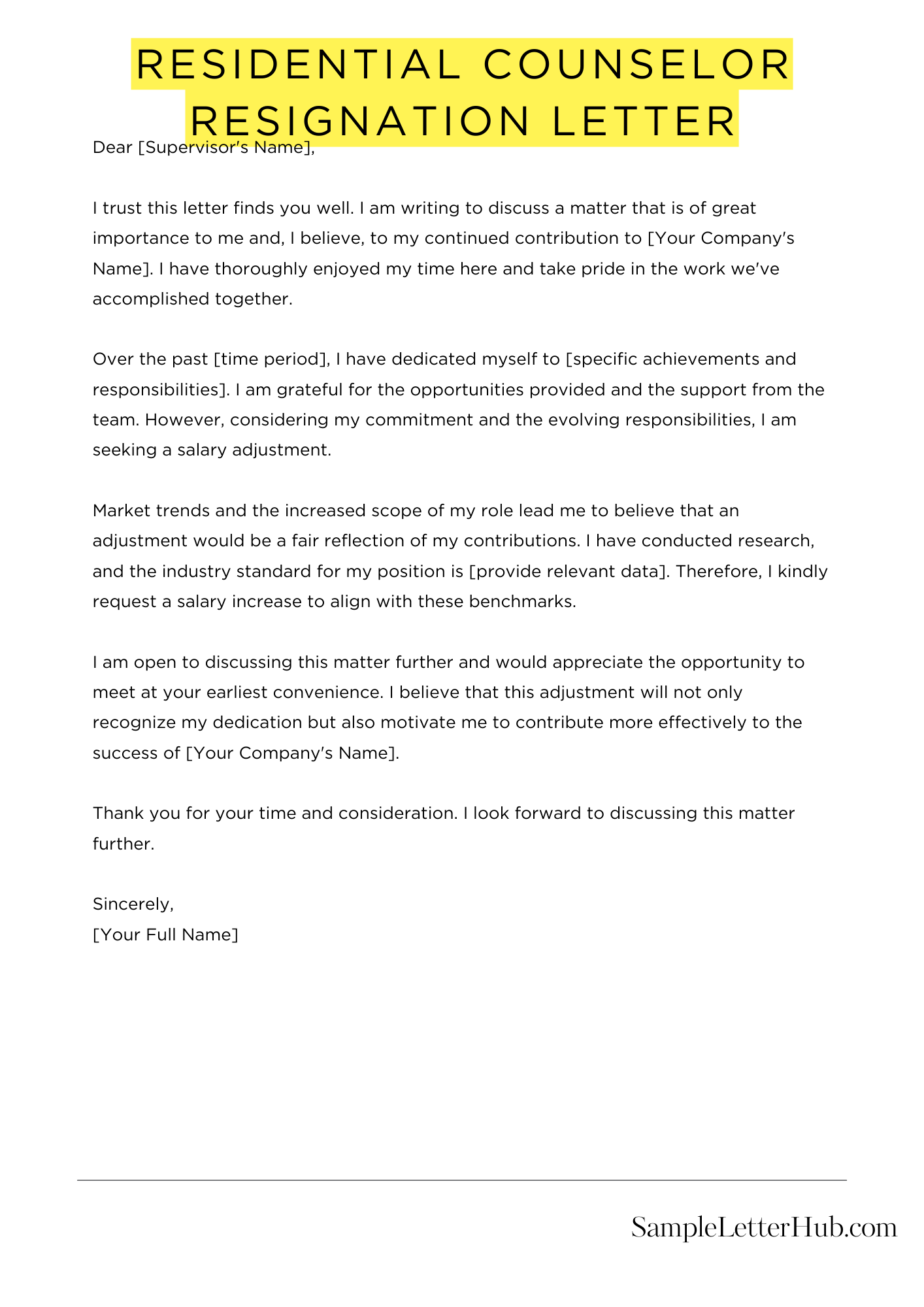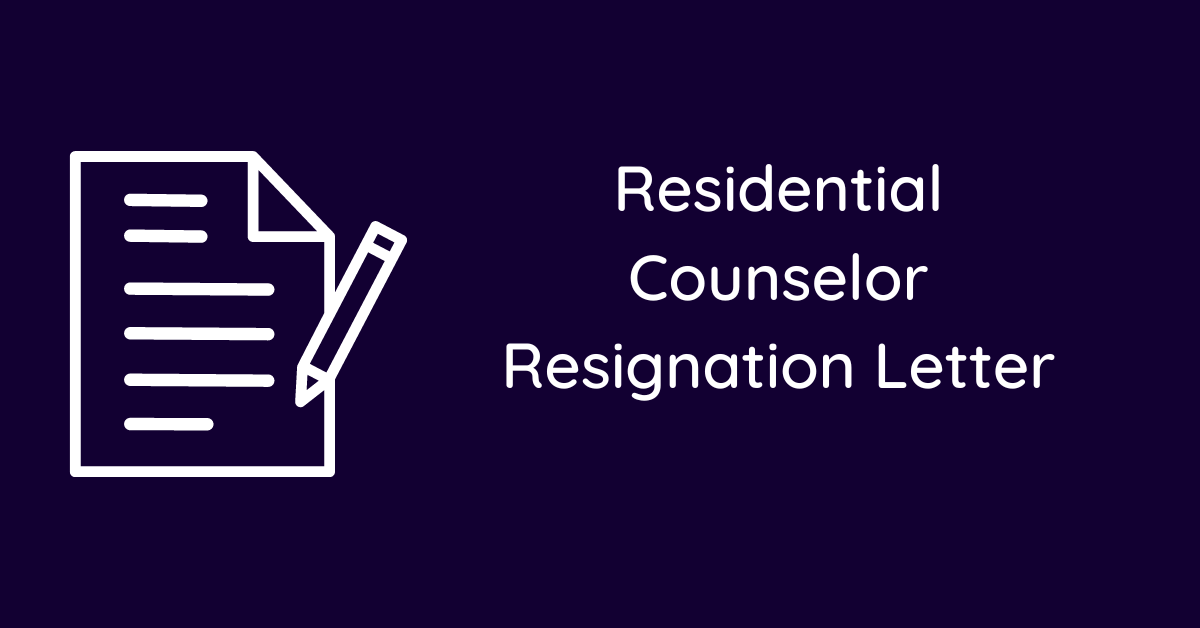If you’re a residential counselor who’s decided to move on, you’ll need to write a clear and professional resignation letter. In this article, we’ll share an example of a residential counselor resignation letter that you can use as a template.
When writing your resignation letter, it’s important to be polite and humble. Thank your employer for the opportunity to work at the facility and express your appreciation for their support. Keep your letter brief and to the point, and avoid getting into any negative details about your reasons for leaving.
Below, we’ve included a template for a residential counselor resignation letter that you can use as a starting point. Feel free to adapt it to fit your own circumstances.
Residential Counselor Resignation Letter
Dear [Recipient Name],
Please accept this letter as formal notification that I will be resigning from my position as a Residential Counselor at [Organization Name], effective [Last Date of Employment].
I have enjoyed my time at [Organization Name] and am grateful for the opportunities I have been given. I have learned a great deal and have grown both professionally and personally during my tenure.
I wish you and [Organization Name] all the best in the future.
Sincerely,
[Your Signature]
Short Residential Counselor Resignation Letter Sample
Please accept this letter as formal notification that I am resigning from my position as Residential Counselor at [Company Name]. My last day of employment will be [Your Last Day]. Thank you for the opportunity to grow and learn during my time here. I wish you and the company continued success. I am happy to assist in the transition process to ensure a smooth handover of my responsibilities.
I wish you all the best with your residential counselor resignation letter.
When it’s time to say farewell, expressing your gratitude and best wishes can make the transition smoother:

How to Write a Residential Counselor Resignation Letter
1. Start with a Formal Salutation
Begin your letter with a formal salutation, such as “Dear [Supervisor’s Name].”
2. State Your Intention to Resign
Clearly state your intention to resign from your position as a residential counselor. Include the date of your last day of employment.
3. Express Gratitude
Express your gratitude for the opportunity to work as a residential counselor and the experiences you have gained. Highlight specific aspects of the job that you have enjoyed and appreciated.
4. Offer to Assist with the Transition
Offer to assist with the transition during your notice period. This could include training your replacement or providing documentation.
5. Close with a Professional Tone
End your letter with a professional tone, expressing your best wishes for the organization’s future success.
6 Most Frequently Asked Questions About Residential Counselor Resignation Letters
1. What should I include in my residential counselor resignation letter?
Your resignation letter should include your name, position, the date you’re resigning, and your last day of employment. You should also express your gratitude for the opportunity to work as a residential counselor and wish the organization well in the future.
2. How do I write a professional resignation letter?
When writing a professional resignation letter, it’s important to be clear, concise, and respectful. Avoid using negative language or making personal attacks. Instead, focus on the positive aspects of your experience and express your appreciation for the opportunity to work at the organization.
3. What should I do if I’m not sure what to say in my resignation letter?
If you’re not sure what to say in your resignation letter, you can consult with a career counselor or human resources professional. They can help you craft a letter that is professional and appropriate for your situation.
4. How much notice should I give my employer?
The amount of notice you should give your employer will vary depending on your contract and the policies of your organization. However, it’s generally considered good practice to give at least two weeks’ notice.
5. What should I do if I’m asked to stay on longer?
If you’re asked to stay on longer than your original resignation date, you should carefully consider your options. You may be able to negotiate a longer notice period or a phased departure. Ultimately, the decision of whether or not to stay on is up to you.
6. What should I do after I submit my resignation letter?
After you submit your resignation letter, you should continue to perform your job duties to the best of your ability. You should also cooperate with the organization during the transition period.
Before making the decision to resign from your job, it’s essential to consider the legal aspects:
Understanding your emotions after quitting your job is important. Explore why you might be feeling sad:
Related
- Resignation letter sample
- Forced resignation letter
- Resignation letter due to going abroad
- Resignation letter due to marriage
- Resignation letter due to other opportunity
- Resignation letter due to mistake

